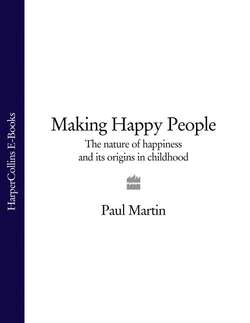Читать книгу Making Happy People: The nature of happiness and its origins in childhood - Paul Martin - Страница 30
11. Outward focus
ОглавлениеBy and large, happy people do not spend most of their time thinking about themselves and dwelling on their own feelings. Rather, their attention tends to be focused outwards on the world around them. In contrast, a tendency towards brooding introspection and a belief in looking out for number one are common characteristics of unhappy people. The philosopher Bertrand Russell wrote of how he started life as an unhappy child but became happier as he grew older, thanks mainly to a dwindling preoccupation with his own self. Russell argued that a person cannot be happy if they suffer from what he called the disease of self-absorption. ‘The man who can centre his thoughts and hopes upon something transcending self,’ he wrote, ‘can find a certain peace in the ordinary troubles of life which is impossible to the pure egoist.’
Self-absorption undermines happiness in many ways. Someone who dwells on their own feelings is unlikely to be brilliant at developing and maintaining close personal relationships. They run the risk of giving little affection and receiving little in return. Self-absorbed people can behave kindly towards others when the need is obvious, but the person to whom kindness comes naturally is more likely to sustain it. The self-absorbed and inwardly-focused can also fall prey to the crippling belief that they alone are responsible for all the bad things that happen to them. Someone who believes, for example, that they are lonely because of fundamental flaws in their personality or appearance may conclude that trying to form new relationships is a waste of time. Their inward focus thereby reinforces their isolation and adds to their unhappiness.
Happiness requires a certain transcendence of the self. Many people unconsciously try to achieve this by distracting themselves with TV, alcohol or recreational drugs, but usually with only limited and temporary success. These tactics might provide some distraction for a few hours, but little more. A better way to achieve outward focus is by regularly engaging with absorbing activities.
The findings from research generally confirm that outward focus is associated with happiness and mental health, including lower rates of depression. Among other things, individuals who are concerned about other people, and not just themselves, are less affected by stress. Outward focus remains important for happiness in old age as well. Studies have found that elderly people whose personal goals and aspirations revolve around an interest in the well-being of others are usually happier than those who are concerned mostly with looking after themselves.
As with many other basic ingredients of happiness, the connection between outward focus and happiness works in both directions. Being outwardly focused contributes to happiness, and being happy makes us more outwardly focused, creating a virtuous circle. The more you avoid thinking about yourself all the time, the happier you become; and the happier you become, the easier it is to avoid thinking about yourself.
The idea that outward focus promotes happiness is, of course, central to many religions and ancient schools of thought, and may contribute to their success. However, outward focus does not fit comfortably with the prevailing attitudes of our current consumerist society. The ‘me’ culture that predominates in the USA and UK revolves around the self, attaching prime importance to individual choice, personal fulfilment and self-esteem. This mindset does little to encourage the thought that we would all be happier if only we were less self-obsessed. Parts of the self-help industry have added fuel to this fire. Most self-help books are, as their name suggests, all about the self, and the worst examples encourage their disgruntled readers to scrutinise their own navels even more closely.
